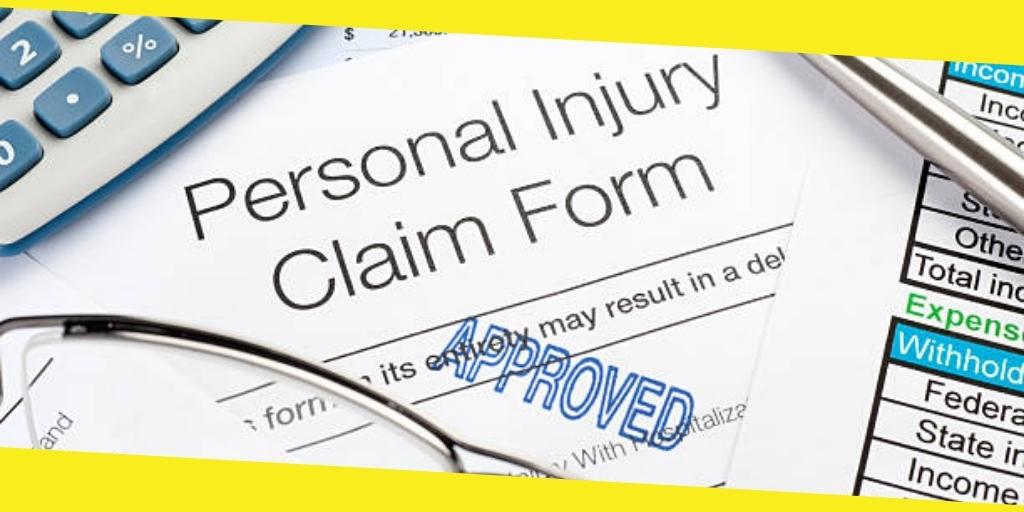What To Do If A Personal Injury Claim Is Filed Against You?
Every day, many people handle personal injury cases. In the U.S alone, NHTSA reports that approximately 5.5 million car accidents occur annually. These automobile accidents lead to roughly 3 million injury cases and 40,000 mortalities.
A personal injury occurs when an individual or company acts negligently, with actions causing an accident. The accident causes injuries to a person. Usually, the injured person is left with issues like lost wages, medical bills, and other damages. And, all these need to be catered to.
This is where a personal injury claim comes in. It involves a legal process where the affected party with physical injuries claims monetary compensation. The personal injury law works to compensate for the harm caused by another party’s negligence.
Personal injury laws may differ in each state. This is why you should never entangle yourself in a personal injury lawsuit without a lawyer.
Personal injury claims may be for incidents like car accidents, animal attacks, defective products, dog bites, cracked sidewalks, wrongful death, etc.
Contents
ToggleWhat Happens During a Personal Injury Lawsuit?
An accident wouldn’t have occurred without one party’s negligence. Thus, the one considered negligent (the defendant or at-fault party) can be held accountable for covering all the costs associated with the injuries and damages. This is what happens during an injury lawsuit.
In the case of a trial proceeding, the injured party (plaintiff) writes a demand letter. They state all the allegations against the defendant, demanding compensation for their injuries. The repayment includes any other cost that came with associated damages. Usually, the personal injury lawsuit proceeds to trial when an out-of-court settlement cannot be reached.
Many injury lawsuits settle outside court when the details are precise about who was liable. But, when both parties cannot reach a fair agreement regarding compensation, the only option is a court trial.
It helps to know what to do if a lawsuit claim is filed against you after an accident. This will keep you from incurring extra losses. Usually, high insurance premiums create added financial burden for drivers held accountable in accidents.
The discussion below will help you know what to do whenever a personal injury claim is filed against you.
1. Go for the Help of Personal Injury Attorneys
You may have an out-of-court case settlement depending on your agreement with the plaintiff. But, in some instances, you may disagree, and the case ends up at trial.
No matter the outcome, expert Yakima personal injury lawyers state the importance of seeking solid legal protection. Legal experts say that working with injury lawyers is the best way to defend yourself against fraudulent claims.
A skilled Yakima personal injury attorney will help you extensively with the case of a dishonest claim. They’ll ensure you avoid paying for unfair claims made against you.
This is why individuals stuck in a lawsuit never choose to handle a personal injury lawsuit without a lawyer. This is because the lack of knowledge and experience to tackle the case legally and professionally could mean heavy losses in compensation.
With a skilled accidents attorney by your side, you can expect your lawsuit to be settled in any of its different phases.
So, let’s say the case goes to trial. An experienced accident attorney will know how to defend you against the plaintiff’s claims.
They will disagree with the plaintiff’s claims based on the procedural rules set where the case was filed.
Some of the responses by your injury lawyer on your behalf could be arguments based on:
- A denial of the plaintiff’s overall allegations
- A denial of the plaintiff’s particular allegations
- Raising some defenses against the plaintiff’s complaints on issues like the statute of limitations.
2. Provide the Right Evidence to the Insurance
Suppose a personal injury claim is filed against you due to an accident. In that case, your insurance company will require you to collect and present evidence supporting your version of the story relating to the accident.
Thus, ensure the details gathered at the accident scene are submitted to your insurance company. The sooner, the better.
Offer a written account of everything that happened. Such includes details showing the lack of negligence on your side. This is mainly the case if a legal claim is filed against you, and you believe you’re not liable for the damages. Maybe the complainant or another party was reckless, and you were accused falsely.
It helps to present photos or videos taken at the incident scene. To make more sense, you should also describe issues like:
- How did the accident happen?
- The speed of the motor vehicles involved (if it’s a car accident injury)
- Possible statements made by the other party (have a witness testimony)
- Signs of injury that were observed due to another’s carelessness
- Surveillance footage
Your injury claim lawyer will help you obtain testimony from others and necessary videos from the surrounding scenes.
3. Ensure Your Insurance Company Protects You Against False Claims
Your insurance company is not just there to pay you in case of a car accident. Instead, it’s also responsible for protecting you against other people’s false claims.
Usually, your insurance company will likely do any necessary payout to the plaintiff. So it’s upon them to ensure they avoid compensation to the other party, not unless you agree to the legal claim.
The insurance company should recognize that fraud tends to happen. Thus, they must protect you from being taken advantage of. By doing this, they also safeguard themselves from parties with false claims.
But, this doesn’t mean you should fight to deny the prosecutor or complainant their rights to justice. If you’re liable for their damages, it’s essential to ensure that your insurance company covers their harm.
It helps to stand for justice. Place yourself in the complainant’s shoes. Practice ethical decision-making.
4. Give the Attorney Appropriate Claim Investigation Details
If you’re working with a lawsuit attorney for the case, ensure you give the legal expert the correct facts. Once you get hold of your attorney, they’ll often interview you.
The interview will most likely entail every detail of the accident. In the case of a motor accident, your car accident lawyer will review all the injuries, plus their sources. Remember that your lawyer wouldn’t want a sudden surprise of events. Thus, ensure you answer every question right.
This will help them know how to file the claims and present the case in a way that you end up winning the favor. And, if you’re at fault, the case can be fair, and the compensation won’t be too much to leave you empty-handed.
Final Thoughts
The court trial process can be long and complex when a personal injury claim is filed against you. Jury trials will often choose individuals to act as jurors. Again, once each party gives their opening statements, lawyers may have to cross-check the other party. Also, all witnesses may be forced to present their testimonies.
Amidst all, it helps to stay calm and pursue justice by all means. If you’re sure you aren’t liable for the complainant’s injuries, your lawyer will fight for your case best. Also, if you’re at fault, the attorney will know how to minimize the blame on your actions.
Once your case proceeds to court, the evidence you give will be reviewed thoroughly by a jury or judge. This is often an opportunity for you to present your case and defend yourself.
The court decisions will also determine how much you should compensate the plaintiff (if necessary).
Considering the complexity of the legal procedures, it’s often difficult to handle a personal injury lawsuit without a lawyer. On the other hand, things will be relatively more effortless if you’re working with an experienced accident attorney.
Recommended For You
8 Stressful Situations a Lawyer Can Help With
Most Inside
Most Inside offers high-quality recommendations and valuable updates to enhance all aspects of your life, providing premium guidance and enriching experiences.





